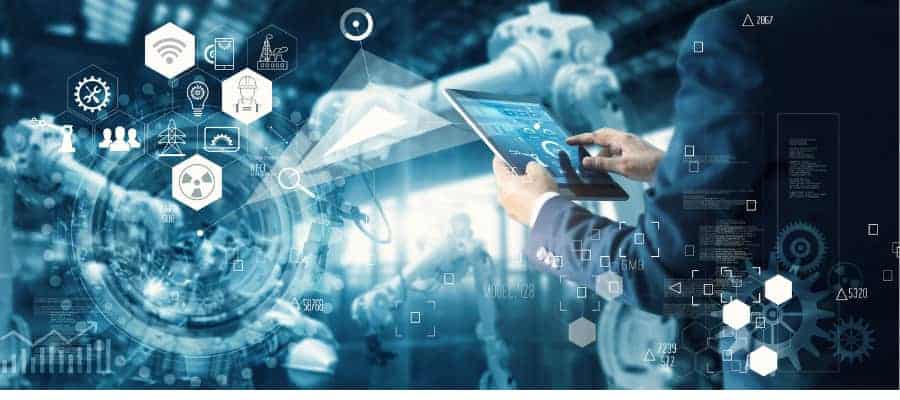An audit is a difficult thing to manage as a client and a tricky thing to get right as an audit professional. It is an all-inclusive responsibility that involves calculation, verification, analysis, and evaluation of the financial records to determine whether a Company is giving a ‘true and fair’ picture of their financial performance and position. It may seem like a monotonous task, but is automation the right price for it?
Auditors will not be replaced by AI alternatives because computing cannot replace human acumen and judgement gained through experience. It can assist the audit process in tasks such as speeding up calculations. This will instead allow auditors to move up the value chain to become strategic advisors.
This article explores the role of auditors today and looks at the imminent need for automation in audit practices while also explaining automation advancements in the field. The speed of adopting automated practices is discussed towards the end.
The Role of Auditors Today
Auditors have been in existence in some capacity for at least the last three centuries. The practice was initiated in the 18th century due to the mass-production introduced by the Industrial Revolution. Traditionally, the auditor’s role is: “to examine, interpret, and analyse accounting records for the preparation of financial statements”.
An auditor will essentially review the financial statements of a client (typically a Company) and verify each financial statement caption such as revenue, fixed assets or cash at bank are correctly reported by the client.
This is done via audit procedures. An example may be to verify that the client is reporting the correct amount of cash on their balance sheet, the auditor will contact the bank and ask to confirm the balance held by the client. This is known as 3rd party corroboration.
Currently, the auditing fraternity is facing a seismic shift. As automation continues to make monumental changes to the profession, the job’s focus has continued to shift from low-level ticking to more detailed analysis and evaluation.
These technological advancements have been on the horizon for a very long time. Still, as the Covid-19 pandemic has accelerated automated digitalization in other fields, it is apparent that accounting and auditing are beginning to follow suit.
The largest accounting firms have already taken the initiative to introduce new technology. The others have followed suit with filtered automation as a minimum viable product in the auditing procedures.

The Imminent Need for Automation
According to Will Robots Take My Job, there is a 94% probability of robots taking over audit and accounts preparation jobs at some point in the future. There were 1,280,700 employees in the industry, with the median annual wage amounting to $71,550 in the US.
The most significant change in audit practices has been the establishment of data analytics. The automated software solutions allow the user to review minor transactions, download evidence, and optimise numerous other audit processes.
The change in audit technology has been welcomed by the heads of KPMG and other such leaders to cut down the human effort and make the audit process more efficient. The software solutions are more than capable of identifying minor transactions and verifying them against the financial records or performing more analytical procedures which compares financial data over time and builds expectations for the current year figures to make an assessment of its reasonability.
Companies catering to multinationals with finances amounting to millions and billions of dollars cannot afford to focus on low expenditures. This is why the integration of artificial intelligence and machine learning in accounting and audit is necessary. Once a bot is fed with sufficient sources to develop a strong knowledge base, then it can gradually improve its abilities to improve performance.
The use of machine learning will help auditors focus on anomalies that deserve human effort and attention. The minuscule adjustments for financial journals should not require an auditing expert and a couple of hours when a machine can complete the same task much faster.
The ultimate goal of machine learning within auditing is to free-up the time of the well-paid audit professionals who can use their professional judgement developed over years of experience to tackle the highest risk and most subjective areas of the audit.
The Advent of Automation in Auditing
Artificial intelligence has continued to improve and adapt at an incredible speed in the last decade. Further development of streamlined e-commerce and industrial procedures has reduced a considerable chunk of manual jobs and the stats suggest there are no signs of stopping for the next three decades.
RPA (Robotic Promotion Automation) is a powerful solution for all audit woes on an interface level. A survey from Deloitte has revealed that RPA is being deployed in financial management (54%), tax (5%), and internal audit (2%).
In such critical circumstances, accountants and auditors must analyse the impact of technology. Firms have cited improvement in audit quality due to the faster speed and accuracy of data analytics. They have also vouched for the efficacy of obtaining insights and reliability in forecasts and financial predictions for the stated period. However, technology is still a tool that requires regulation and monitoring from a seasoned expert in the field which suggests that an auditors roles will not be made obsolete but rather shift to work more seamlessly with the ever-improving technology.
This need for expert advice in audit automation has left a gap in the market that requires a consistent collaboration between the stakeholders, audit professionals and software developers to generate results that can disrupt the market that has not progressed much historically. Technological change is inevitable. It will continue to evolve alongside the societal expectations about financial management and transparency.

How Quickly Can Robots Transcend the Role of Human Beings Within the Auditing Profession?
The modern audit process is focused on sampling, the practice of concluding on a subset of data within the larger data population. The process can be both tedious and expensive and is also threatened by human bias. Decisions based on a sample alone could present further challenges to the company itself.
As the volume and complexity of data increases, the dependency on automated sampling becomes a coping mechanism to deal with the depth of transactional figures involved in each journal for a specific company. The only alternative to sampling is examining all the data which is unfeasible given the volumes involved in many companies. Manual effort in sampling is a waste of time and precious work hours that could be spent on another challenge.
The International Data Corporation has stated that the amount of data stored in global IT systems doubles after every two years. If the total amount of data saved by 2020 was transferred to tablets, the stack could cover the distance between the earth and the moon over 6.6 times which goes to show the importance of machine learning solutions.
As an auditor, assurance can be found in AI’s cutting-edge developments to ensure the removal of material irregularities in the data fed to the machines. While the auditor’s primary concern is to determine the most severe threats to a company, studies have revealed that auditors could allocate only a quarter of their working hours to risk analysis.
As accounting firms encounter the imminent need for purpose-built AI/machine learning solutions for auditing, the quicker robots will take over the manual effort. The role of the bot is to speed up the process while removing inaccuracies from the equation. This way, the auditor can be more efficient about risk management and decision making. Firms that fail to adopt AI now will be at a disadvantage in the long term.
The question here then is not just about what AI can change in the audit practice but how far the evolution of digital solutions in this context will go?
Auditors who are hesitant to embrace technology are likely to be replaced with other auditors who already have AI and machine learning in their arsenal. This is how an auditor can become an invaluable resource to a business.
Employing an audit firm who haven’t embraced machine learning is increasingly like brining a knife to a gun fight. Not only will the audit process be slower, it will almost certainly be lower quality.
Should Auditors Worry About AI?
While artificial intelligence is lending auditors a hand with task-automation that frees them up from repetitive, mundane tasks to focus on high-value work, does this mean that at some point, the same help will make them redundant?
At this moment in time, Auditors do not need to be overly worried for a number of reasons. Firstly, because the legislature worldwide simply isn’t ready for robots to be responsible for compliance.
Secondly, as recent years have shown that increased dependence on technological solutions hasn’t slowed down the volume of auditor’s being hired, it’s a fair assumption that even with ground-breaking AI solutions, human auditor’s will still be required for the professional judgement and risk assessment qualities they can bring to the table as well as overseeing the technology.
Conclusion
Auditing will experience a paradigm shift soon. Despite calls from regulators, the auditing definition may not change at all; however, it’s almost certain that audit procedures and practices will continue to evolve to become more in-tune with technology. Manual, repetitive tasks such as ticking through invoices and cash receipts which used to be the bread and butter of the audit professional, will increasingly be turned over to technology.
Similarly, the human error associated with the audit process (whether that be in sampling or reviewing audit evidence) will likely be mitigated by an increased reliance on AI into the future.
Whilst it’s difficult to predict too far into the future given the rate of change of technology, auditor’s jobs aren’t at immediate risk of being replaced by AI and audit remains a strong, dependable career choice.
As always, please remember I am an Accountant, but not your Accountant. In this post (and all of my others) I share information and oftentimes give anecdotes about what has worked well for me. However, I do not know your personal financial situation and so do not offer individual financial advice. If you are unsure of a particular financial subject, please hire a qualified financial advisor to guide you.
This article has been written by Luke Girling, ACA – a qualified Accountant and personal finance enthusiast in the UK. Please visit my ‘About‘ page for more information. To verify my ACA credentials – please search for my name at the ICAEW member finder. To get in touch with questions or ideas for future posts, please comment below or contact me here.
